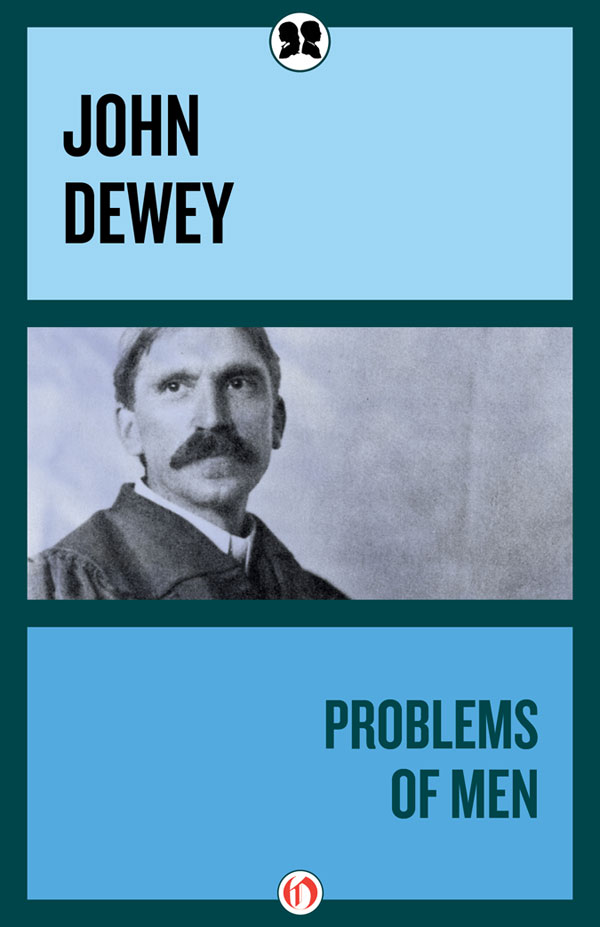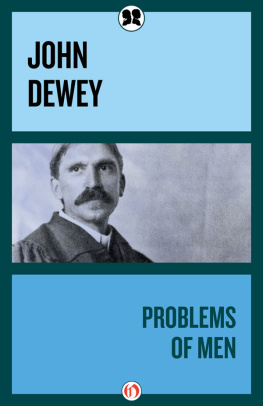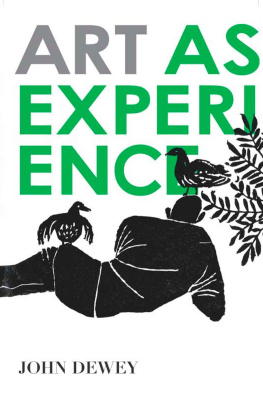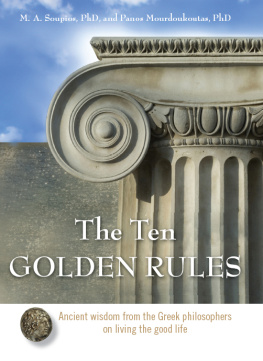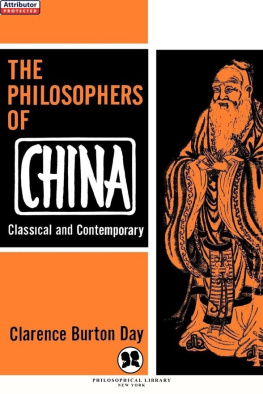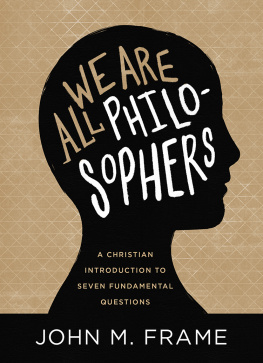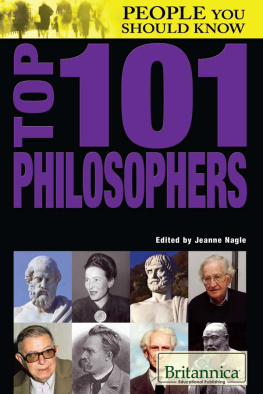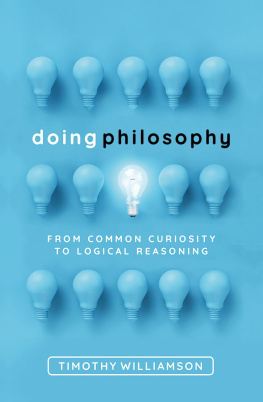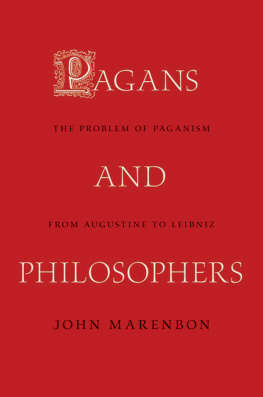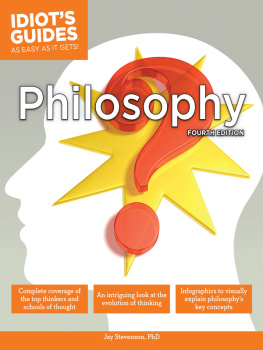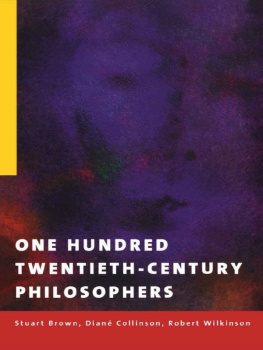ACKNOWLEDGMENTS
Grateful acknowledgment is due to the editors of the following journals, who have given permission to reprint the articles mentioned below:
The Journal of Philosophy, for The Future of Liberalism (vol. XXXII, No. 9); The Ambiguity of Intrinsic Good (vol XXXIX, No. 12); Valuation Judgments and Immediate Quality (vol XL, No. 12); Further as to Valuation as Judgment (vol. XL, No. 20); Some Questions about Value (vol. XLI, No. 17); By Nature and by Art (vol XLI, No. 11); How Is Mind to Be Known? (vol XXXIX, No. 2); The Objectivism-Subjectivism of Modem Philosophy (vol. XXXVIII, No. 20); Inquiry and Indeterminateness of Situations (vol. XXXIX, No. 11); Propositions, Warranted Assertibility, and Truth (vol. XXXVIII, No. 7); The Vanishing Subject in the Psychology of James (vol. XXXVII, No. 22);
The Social Frontier, for Toward Administrative Statesmanship (vol. I, No. 6); The Teacher and His World (vol. I, No. 4); United, We Shall Stand (vol I, No. 7); The. Social Significance of Academic Freedom (vol. I, No. 6); The Crucial Role of Intelligence (vol. I, No. 5); Youth in a Confused World (vol. I, No. 8); Liberty and Social Control (November, 1935); The Meaning of Liberalism (December, 1935); Liberalism and Equality (January, 1936); Liberalism and Civil Liberties (February, 1936);
School and Society, for Authority and Resistance to Social Change (No. 1137); Democracy and Educational Administration (No 1162); The Future of Liberalism (No. 1047); The Relation of Science and Philosophy as the Basis of Education (No. 1215);
The Southern Review, for Religion, Science and Philosophy and The Philosophy of William James:
The Philosophical Review, for Nature in Experience (March, 1940) and Whiteheads Philosophy (vol. XLVI, No. 2);
Progressive Education, for The Challenge of Democracy to Education (vol. XIV, No. 2) and What Is Social Study? (vol. XV, No. 5);
The Antioch Review, for The Democratic Faith and Education (vol. IV, No. 2);
The American Scholar, for The Problem of the Liberal Arts College (vol. XIII, No. 4);
The Journal of the History of Ideas, for James Marsh and American Philosophy (vol. II, No. 2);
Forum and Century, for The Need for Orientation (vol. XCIII);
Fortune, for Challenge to Liberal Thought (August, 1944);
The Rotarian, for Does Human Nature Change (vol. LII, No. 2);
The Humanist, for The Revolt against Science (vol V, No. 3); and the Society for Ethical Culture, for Democracy and Education in the World of Today (Felix Adler Lecture, 1938).
I
THE DEMOCRATIC FAITH AND EDUCATION
Not even the most far-seeing of men could have predicted, no longer ago than fifty years, the course events have taken. The expectations that were entertained by men of generous outlook are in fact chiefly notable in that the actual course of events has moved, and with violence, in the opposite direction. The ardent and hopeful social idealist of the last century or so has been proved so wrong that a reaction to the opposite extreme has taken place. A recent writer has even proposed a confraternity of pessimists who should live together in some sort of social oasis. It is a fairly easy matter to list the articles of that old faith which, from the standpoint of today, have been tragically frustrated.
The first article on the list had to do with the prospects of the abolition of war. It was held that the revolution which was taking place in commerce and communication would break down the barriers which had kept the peoples of the earth alien and hostile and would create a state of interdependence which in time would insure lasting peace. Only an extreme pessimist ventured to suggest that interdependence might multiply points of friction and conflict.
Another item of that creed was the belief that a general development of enlightenment and rationality was bound to follow the increase in knowledge and the diffusion which would result from the revolution in science that was taking place. Since it had long been held that rationality and freedom were intimately allied, it was held that the movement toward democratic institutions and popular government which had produced in succession the British, American, and French Revolutions was bound to spread until freedom and equality were the foundations of political government in every country of the globe.
A time of general ignorance and popular unenlightenment and a time of despotic and oppressive governmental rule were taken to be practically synonymous. Hence the third article of faith. There was a general belief among social philosophers that governmental activities were necessarily more or less oppressive; that governmental action tended to be an artificial interference with the operation of natural laws. Consequently the spread of enlightenment and democratic institutions would produce a gradual but assured withering away of the powers of the political state. Freedom was supposed to be so deeply rooted in the very nature of men that, given the spread of rational enlightenment, it would take care of itself with only a minimum of political action confined to insuring external police order.
The other article of faith to be mentioned was the general belief that the vast, the almost incalculable, increase in productivity resulting from the industrial revolution was bound to raise the general standard of living to a point where extreme poverty would be practically eliminated. It was believed that the opportunity to lead a decent, self-respecting, because self-sufficient, economic life would be assured to everyone who was physically and morally normal.
The course of events culminating in the present situation suffices to show without any elaborate argument how grievously these generous expectations have been disappointed. Instead of universal peace, there occurred two wars worldwide in extent and destructive beyond anything known in all history. Instead of uniform and steady growth of democratic freedom and equality, we have seen the rise of powerful totalitarian states with thoroughgoing suppression of liberty of belief and expression, outdoing the most despotic states of previous history. We have an actual growth in importance and range of governmental action in legislation and administration as necessary means of rendering freedom on the part of the many an assured actual fact. Instead of promotion of economic security and movement toward the elimination of poverty, we now have a great increase in the extent and the intensity of industrial crises with great increase of inability of workers to find employment. Social instability has reached a point that may portend revolution if it goes on unchecked.
Externally it looks as if the pessimists had the best of the case. But before we reach a conclusion on that point, we have to inquire concerning the solidity of the premise upon which the idealistic optimists rested their case. This principle was that the more desirable goals in view were to be accomplished by a complex of forces to which in their entirety the name Nature was given. In practical effect, acceptance of this principle was equivalent to adoption of a policy of drift as far as human intelligence and effort were concerned. No conclusion is warranted until we have inquired how far failure and frustration are consequences of putting our trust in a policy of drift; a policy of letting George in the shape of Nature and Natural Law do the work which only human intelligence and effort could possibly accomplish. No conclusion can be reached until we have considered an alternative: What is likely to happen if we recognize that the responsibility for creating a state of peace internationally, and of freedom and economic security internally, has to be carried by deliberate cooperative human effort? Technically speaking the policy known as laissez-faire is one of limited application. But its limited and technical significance is one instance of a manifestation of widespread trust in the ability of impersonal forces, popularly called Nature, to do a work that has to be done by human insight, foresight, and purposeful planning.
